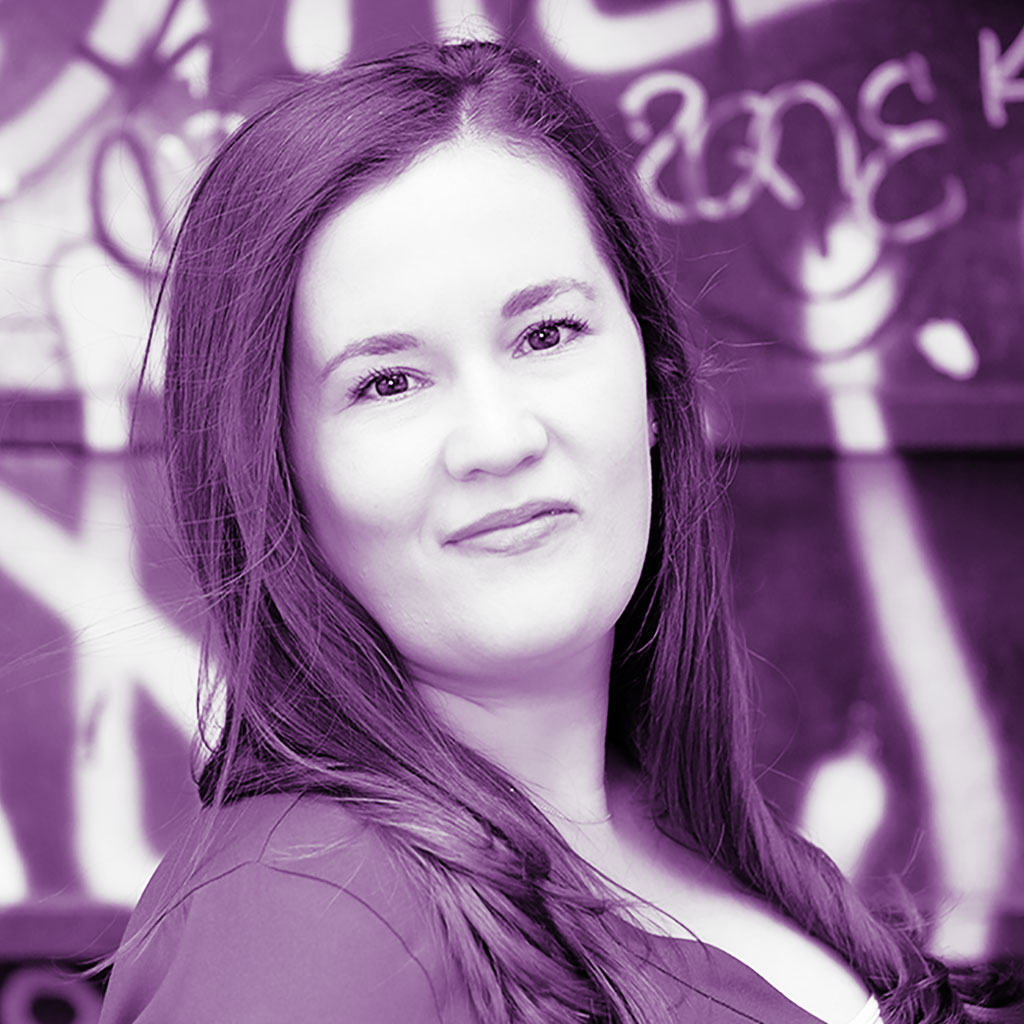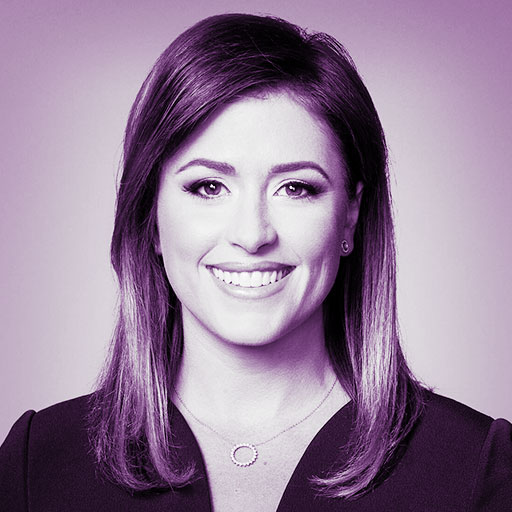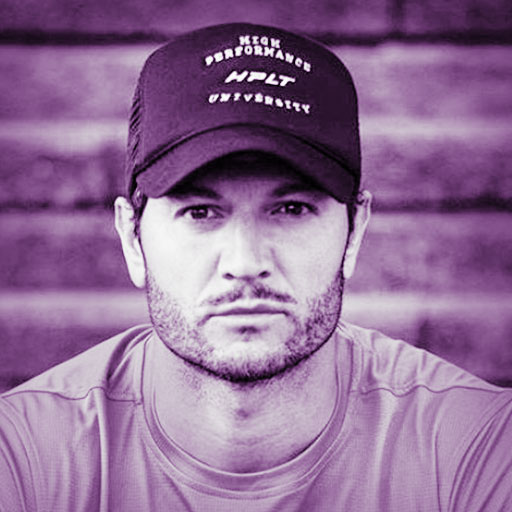Episode 76: Joy of Fatherhood After Battling Male Infertility
Infertility can be draining for many reasons – the financial burden, the emotional toll, the relationship friction, and so much more. Then add the extra layer of having a job that puts you in the spotlight where fans depend on your presence, despite what’s happening at home, and you have a recipe for severe emotional distress.
Then add the pressure of having a job that puts you in the spotlight where you’re having to show up for fans and followers, regardless of what’s going on at home.
In today’s episode, co-founder of The Ainsworth and founder of HPLT: High Performance Lifestyle Training, Brian Mazza and his wife, CNN Entertainment Reporter, Chloe Melas share how they managed just that. With both male and female factor infertility, multiple rounds of failed IUI, a clinic change, and IVF, Brian and Chloe had to navigate their relationship and careers with thousands of eyes watching from behind the TV and smartphone screens.
Brian has spent the past few Father’s Days celebrating with his sons, but the road to fatherhood was a long one, paved with hardship and tension. Like all dads who celebrate after an infertility struggle (and those who are still on their journey!), this day is an emotional one.
Guests: Brian Mazza, entrepreneur, and Chloe Melas, CNN Entertainment Reporter
Host: Lissa Kline
For more information visit Progyny’s Podcast page and Progyny’s Education page for more resources.
Be sure to follow us on Instagram, @ThisisInfertilityPodcast and use the #ThisisInfertility.
Have a question, comment, or want to share your story? Email us at thisisinfertility@progyny.com.
Here are some highlights from this episode:
Taking the Fun out of Intimacy
7:19 – 9:28
Lissa Kline: For many, fertility treatment is their first interaction with a complicated and time-consuming medical treatment. But the focus on IVF often shifts the focus from other difficulties that people go through as they’re trying to conceive. There are exceptions, but most male female couples with infertility have to try for six to 12 months before they seek help. That six months to a year of frustrations and disappointments that is often under discussed in the fertility community.
Brian Mazza: I think the frustrating part, is tracking and timing intercourse around ovulation. Just not fun. It becomes a second job. Getting intimate should be spontaneous.
Chloe Melas: We always had a great physical attraction to each other. And I would say that things really went downhill when it started becoming like, okay, we have to have sex Wednesday, Thursday and Friday of this week. And then you’re reading everything online, like hold your legs up in the air right afterwards. I mean, it seems like such a distant memory now, but I could cry. Like thinking about all those times that Brian literally would sit there and hold my legs up in the air after.
Male Factor Infertility
9:50 – 13:09
Chloe Melas: He went and got checked and then that’s when his numbers were really, low and it was awful. I was really resentful, and I just remember crying in our living room so hard, and I feel bad. I wasn’t even being mean, I was just crying so hard that I remember thinking, this has to be really awful for him too but it felt like somebody died when they told me that his sperm count was so low.
Lissa Kline: So much attention is put on the woman during a fertility treatment, that it can be easy to forget that male factor infertility is equally as prevalent as female infertility. Generally a third of all cases are due to some sort of issue on the female side, a third of all cases are due to some sort of issue on the male side, and a third of cases are due to some combination of the two or of unknown complications, which is called unexplained infertility. But that doesn’t make a male factor infertility diagnosis any easier to handle.
Brian Mazza: I think this process kind of hurt our marriage and relationship in the beginning. You know, she was very resentful towards me and was very mad at me a lot. And I think maybe when it was time for me to go to a doctor I was like, I just don’t feel like going but I did.
Chloe Melas: I was just on his case, you know, it wasn’t that I was mean. I was just really on his case about it and I’m very relentless. I’m just super, super, super on top of things to the point where it’s incredibly annoying.
Brian Mazza: And I’m the type of person, if you’re like constantly on top of me to do things, I just won’t do it.
Changing Doctors
14:25 – 16:13
Chloe Melas: We finally did our first IUI in July of 2016. We did the IUI, and we were so hopeful, so excited, and it was awful to find out that IUI didn’t work.
Lissa Kline: Unfortunately, their second attempt failed as well. While taking medications for a third round of IUI, Chloe had a revelation.
Chloe Melas: It was in the middle of going through that cycle of medication days away from my third IUI, that I just had this overwhelming feeling that I was not at the right clinic.
Lissa Kline: Living in New York City, the couple had several options to choose from. And they did some research and found a doctor that they really connected with.
Chloe Melas: He took my blood work, but he did an ultrasound in the office. And he said, you’re totally overmedicated, in my medical opinion. This was not knowing about Brian’s sperm count other than what he saw on paper. He’s like, I just don’t think that you should go through with your IUI, so I didn’t go through with the IUI, I stopped taking the medicine, and I canceled my appointment.
Lissa Kline: Changing doctors in the middle of fertility treatments can be a very difficult thing. And it’s a decision that should not be taken lightly. But Chloe says it’s important for people to understand that it’s an option.
Choe Melas: I just felt like it wasn’t the right place for me. That’s something that I want to definitely talk about, just following your gut instincts and don’t be afraid to switch doctors in the middle of it. I feel like some of my girl and guy friends feel like, I started with them, I need to finish this with them. They have all my PET tests, they have everything, I need to stay. So I’m really glad I trust it in my gut.
IVF
17:18 – 18:22
Choe Melas: I did not want to do IVF because I thought IVF was the end of the road, and that there was nothing after IVF.
Lissa Kline: For Chloe, she feared that if IVF didn’t work, it would mean that the couple wouldn’t have kids. But for Brian, the idea of IVF was something different, something more like a step in the right direction.
Brian Mezza: I liked that call, though, because I felt like there was a plan now. He knew all the issues and then he knew what path to take.
Chloe Melas: We literally started medication that month in September. It was September, we did the IVF. The following month, and only one round of IVF, I got pregnant with Leo.

Host
Lissa oversees the Patient Care Advocates and the Provider Relations Team. She worked at Columbia University Medical Center for several years in the division of Reproductive Endocrinology and Infertility. Involved in Patient Services and the Donor Egg Program, she loved working with patients while they underwent fertility treatment. Lissa graduated with a Master of Science in Social Work from Columbia University.

Guest
Chloe Melas is an entertainment reporter for CNN, covering all things entertainment and Hollywood for the network across platforms. Melas is based out of CNN’s New York bureau.
In addition to her breaking news coverage of the entertainment industry, Melas has done extensive reporting in the #MeToo era, reporting exclusively on sexual harassment and misconduct allegations on high profile figures, including Kevin Spacey, Harvey Weinstein, and Morgan Freeman.
Before joining CNN, Melas spent nearly seven years at HollywoodLife where she was a senior entertainment reporter. She launched the site in 2009 with Bonnie Fuller. In 2013, Chloe became one of the co-hosts of VH1’s hit morning show, The Gossip Table. And prior to HollywoodLife, she was a News Assistant for CNN.
Melas is a graduate of Auburn University where she majored in Radio, TV & Film. She grew up in both Dallas, Texas, and Atlanta, Ga. and currently resides in Manhattan with her husband and two sons.

Guest
Brian Mazza is an entrepreneur based out of New York. He co-founded The Ainsworth in 2009 and in 2010 created the men’s custom clothing company Windsor Custom.
Brian’s primary passion has always been creating; and over the years he has carved out a space in health and wellness. From a young age Brian has always been a highly competitive athlete, and it was that drive that got him a scholarship to play Division 1 Soccer at The University of Rhode Island.
In 2017 and 2019 Brian landed the cover of Men’s Health and has been featured in Men’s Fitness, GQ, Esquire, The New York Times, The Wall Street Journal, Fox 5, Cheddar, Channel 11, HLN, The Steve Harvey Show, and is a frequent contributor on various Food Network shows.
In 2020, by harnessing his audience of 180k Instagram followers, Brian took his love for fitness to a new level with the formation of HPLT: High Performance Lifestyle Training.
Most importantly Brian is a proud father to his two boys Leo and Luke, and husband to CNN correspondent Chloe Melas Mazza. With no intention of slowing down, he is destined to become an unstoppable force utilizing his personal brand and beyond.
Music From This Episode:
Artist: Jason Shaw
Track: Acoustic Meditation
URL: https://freemusicarchive.org
Artist: Manplaisir
Track: Stage 1 Level 24
URL: https://freemusicarchive.org
Artist: Meydan
Track: Underwater
URL: https://freemusicarchive.org
Artist: Jahzzar
Track: Sleepin
URL: https://freemusicarchive.org
Artist: spectacular
Track: What Was That Spectacular Sound Productions
URL: https://freemusicarchive.org
Artist: Swelling
Track: Dawn II
URL: https://freemusicarchive.org
Artist: Lee Rosevere
Track: I Wanted To Live
URL: https://freemusicarchive.org
Artist: Philipp Weigl
Track: Not the Streets you used to walk along
URL: https://freemusicarchive.org



